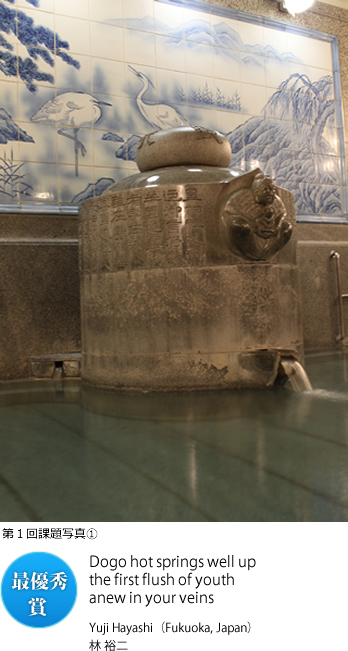
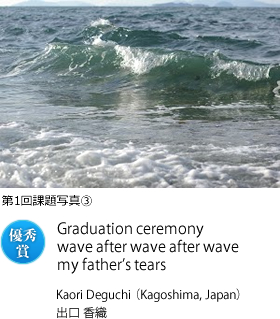
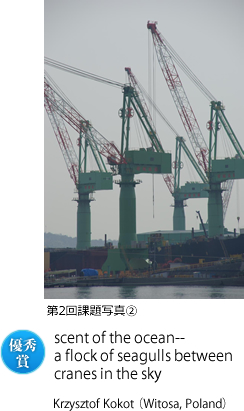
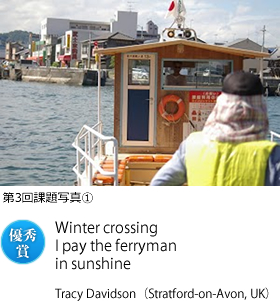
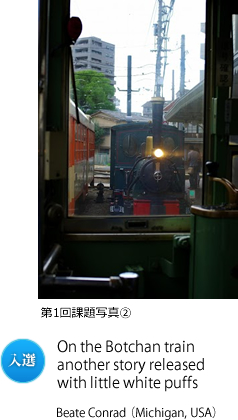
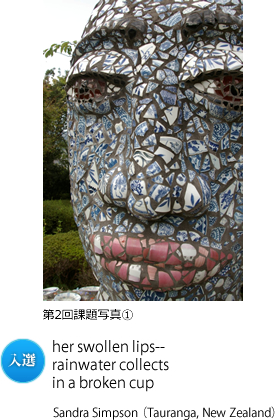
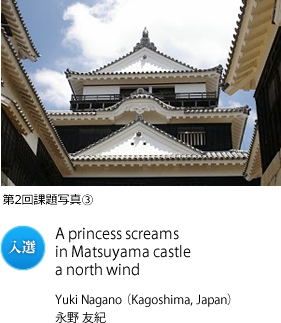
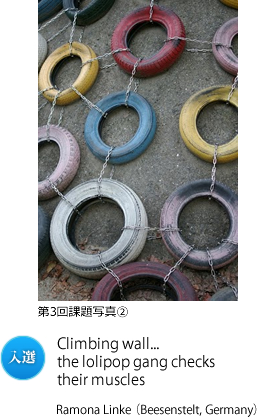
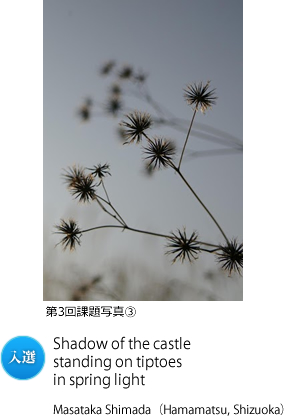
Judges Comments by David McMurray
822 haiku entries penned in English by 400 haikuists living all over Japan and across North, Central, and South America, Africa, Europe, Russia, Asia, Australia and New Zealand vied for selection. 36 additional poets living in Japan who love haiku, but could not write in English, entered endearing poems in the French language.
The constraint of having to write haiku related to photographs taken in Matsuyama inspired much language creativity. Snapshots of famous sightseeing spots--Dogo hot springs and Matsuyama castle--attracted the poets’ keen attention for detail. Haikuists rose to the challenge of composing poetry on unusual topics represented by unloading cranes, colored rubber automobile tires, and statues made of chipped ceramic tiles.
This hotly contested 3-month long competition resulted in 9 winners ultimately being selected from Japan, Poland, UK, US, New Zealand, and Germany. On March 16, 2013 a colorful panel exhibition highlighting these 9 haiku and the photographs that inspired them were put on display in the main exhibition hall of the Shiki Memorial Museum in Matsuyama.
All 822 entries however are recognized for their worthiness as haiku, and it was a pleasure to read them. Congratulations go to the sincere efforts of the 436 haikuists who contributed to the success of the 2nd Matsuyama Setouchi Photo Haiku Competition co-hosted by the Asahi Culture Center in Osaka and the The Asahi Shimbun in Tokyo.
Comments on the Grand Champion Haiku selected by David McMurray
Dogo hot springs well up
the first flush of youth
anew in your veins
This 16-syllable haiku refers to the magma flowing deep in the earth that heats the steaming hot waters which pour from a marble well into a bath and stimulate the arterial circulation of the haikuists own blood, leaving his skin smooth and flushed as the temperature of his body rises. The first poetic line stands alone, but also juxtaposes well with the second and third lines penned in third person. Hot volcanic veins from deep under Matsuyama come into view as we focus on the red flushed face of the haikuist’s refreshed friend surfacing from the hot water bath.
The haiku meriting grand champion status in the 2nd Setouchi Matsuyama Photo Haiku Contest was inspired by a photograph of the men’s bath, Kami-no-yu (water of the gods) inside the Dogo hot spring. Having enjoyed bathing in this public bathhouse on several occasions, Mr. Yuji Hayashi, a professor of English at Seinan Jo Gakuin University in Kitakyushu recalls how the rejuvenating hot waters have the power to make him feel as vital as when he was a young student.
In recognition of this finely crafted haiku in English for the Second Matsuyama Setouchi Photo Haiku Contest co-hosted by the Asahi Culture Center in Osaka and the The Asahi Shimbun in Tokyo, the haikuist receives a 30,000 yen gift coupon, special locally produced products and handicrafts from Matsuyama. The haiku will receive the highest recognition at the haiku conference held on March 16, 2013 when it is prominently displayed in the main exhibition hall of the Shiki Memorial Museum in Matsuyama.

